Saguaro Initiatives
The summer heat in Arizona has intensified in recent years. With temperatures frequently surpassing 100 degrees for several consecutive days. These harsh conditions affect all desert inhabitants, including plants.
As Phoenix continues to grapple with escalating temperatures, it is crucial to implement strategic adaptation measures and sustainable urban planning initiatives to mitigate the adverse effects on our urban green spaces and ecosystems. In response, the Garden has launched Saguaro Initiatives, a pilot set of community science projects aimed at documenting, protecting and preserving the saguaro.
Saguaro Census
In 2022, the Garden launched the Saguaro Census. Each May, the community is encouraged to document saguaros in the Valley by submitting observations through the iNaturalist app. Anyone can join this project and help us better understand the demographics of our urban saguaro population.
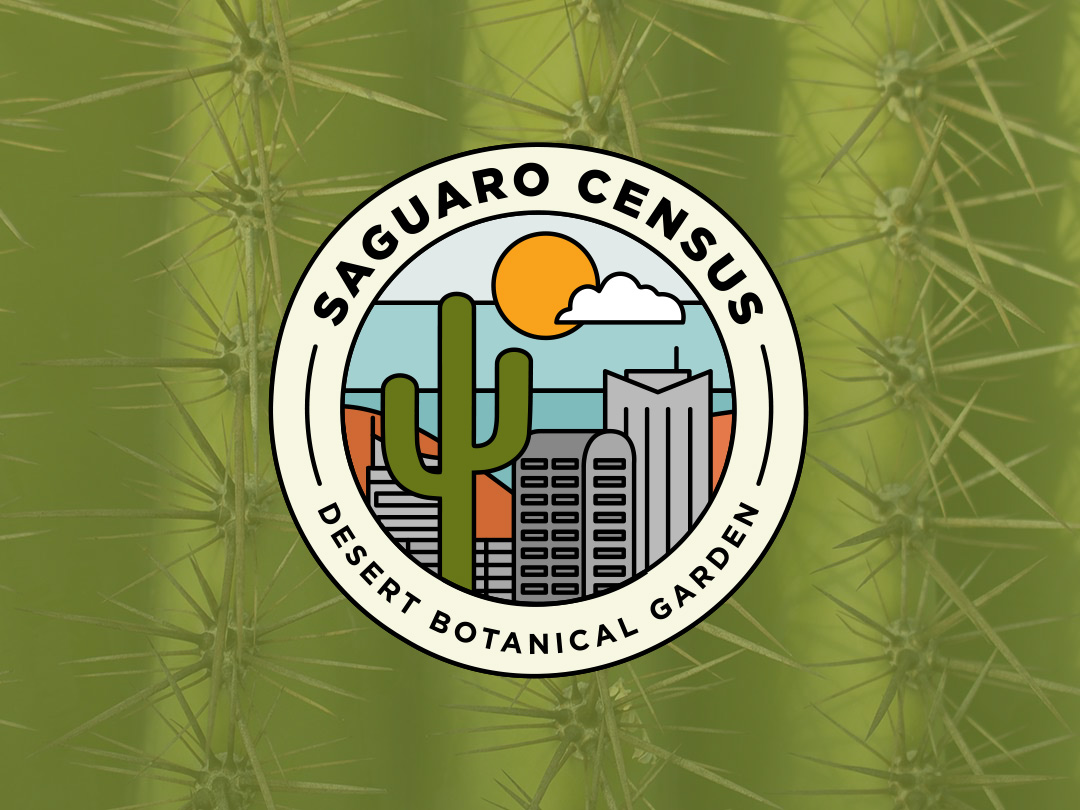
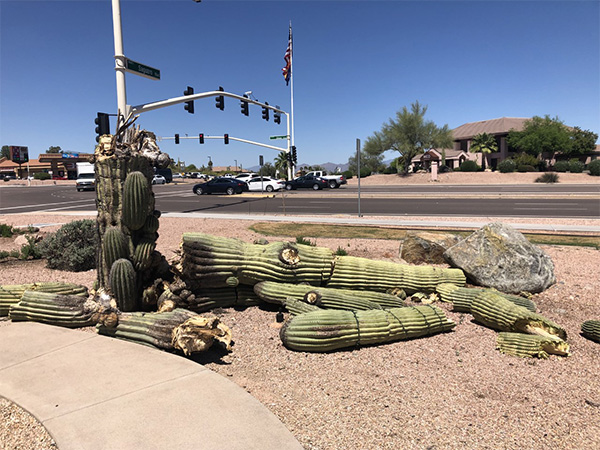
Saguaro Dead Report
Through a simple form, the community can help us better understand saguaro mortality rates in the Phoenix metro Area. It doesn’t matter if the saguaro just died or if it did several years ago. We just need an approximate location and date, the data is useful to Garden scientists to better understand saguaro mortality rates.
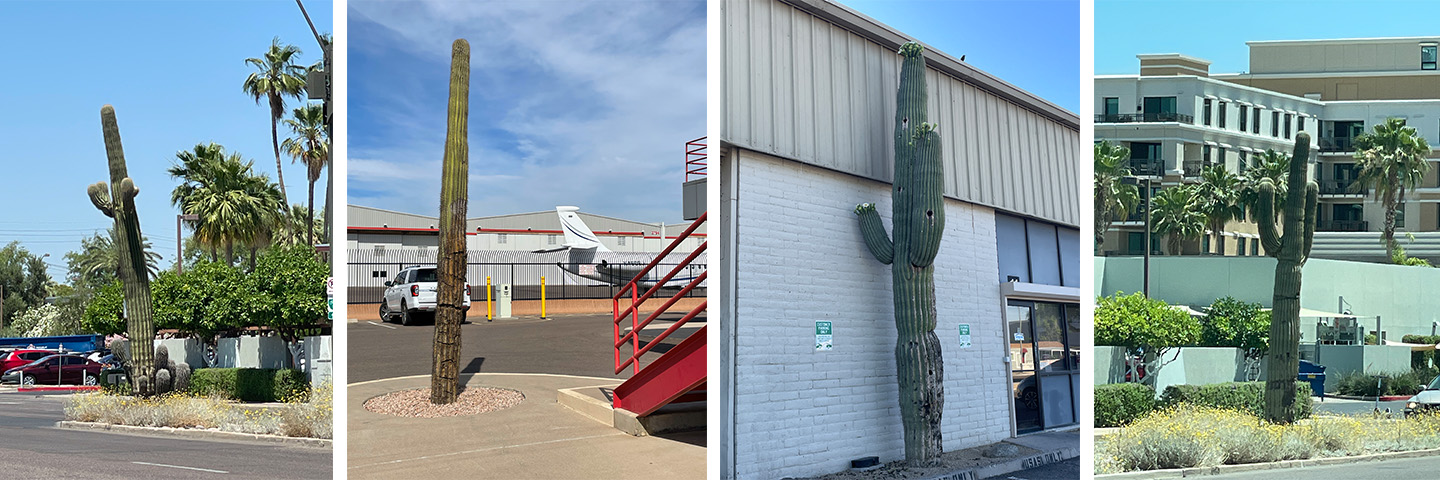
Saguaros Under Stress
Urban areas act as heat islands, experiencing significantly higher temperatures compared of their surrounding rural areas.Urban areas can become several degrees hotter than their rural surroundings, especially during summer. In a sense, the hot and dry conditions in the Valley might be similar to the conditions that rural areas will experience under a climate change scenario. The Garden wants to study the effects of urban extreme conditions on saguaros, by comparing them with their wild relatives.
To study the effects of urban stress, some urban plants will be selected, small tissue samples will be taken and analyzed through DNA and RNA sequencing. Some plants will be monitored through the year, including taking simple diameter and temperature measurements.
Become part of our Saguaro Initiatives volunteer group or volunteer your saguaro.
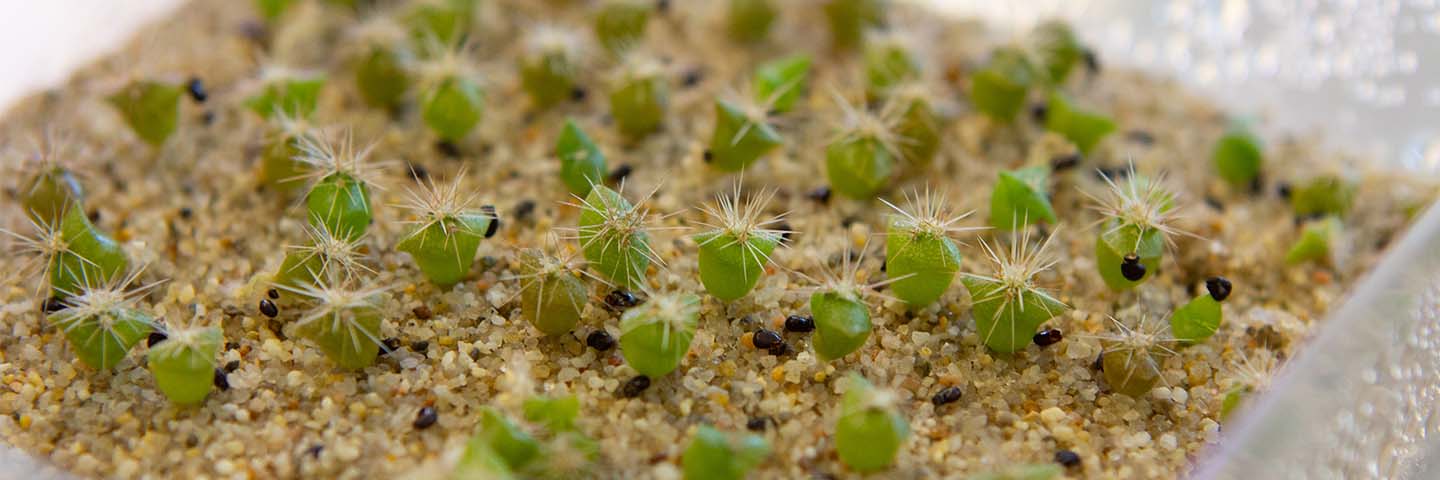
Saguaro Seed Bank
The Garden undertook the challenge of assembling a seed bank to preserve the genetic diversity of the saguaro(Carnegiea gigantea). By traveling and collecting fruits through all the natural range of this species, Garden scientists will complete a seed collection that includes representative seeds of all populations and genetic variants, and will preserve them indefinitely in our Seed Bank facilities.
Due to limited space at the Garden, we are seeking volunteers to assist with this process at their homes. After completing a brief in-person or virtual training, the Garden will provide you with the materials needed.
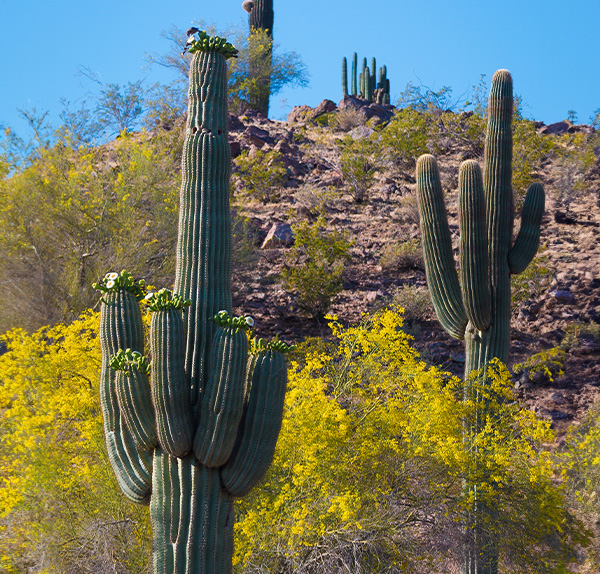
Saguaro Genetics and Conservation
The cactus family, comprising around 1,400 species, is one of the most endangered groups of plants. Many species are facing population declines due to changes in land use, illegal extraction and international trading.
While the saguaro is not currently facing extinction, Garden scientists are utilizing it as a flagship species to develop tools and protocols applicable to all other cacti facing greater risk. We have obtained and analyzed DNA from saguaros across their entire natural range, from southern Sonora to northern Arizona, and gained insights into the genetic diversity and evolutionary history of the saguaro.
Th projecist aims to meticulously study the genetic diversity of the saguaro population in metro Phoenix area, since urban areas like ours can serve as a reservoir of plant species genetic diversity, cared for and preserved by the community. Fill in this form if you are interested in getting your saguaro genotyped.
Promoting a cactus conservation culture in the Phoenix Valley
Saguaro Initiatives is a program created and directed by Research Scientist Dr. Tania Hernandez.
Interested in contributing to the Saguaro Initiatives with a donation?
Contact [email protected]